2024
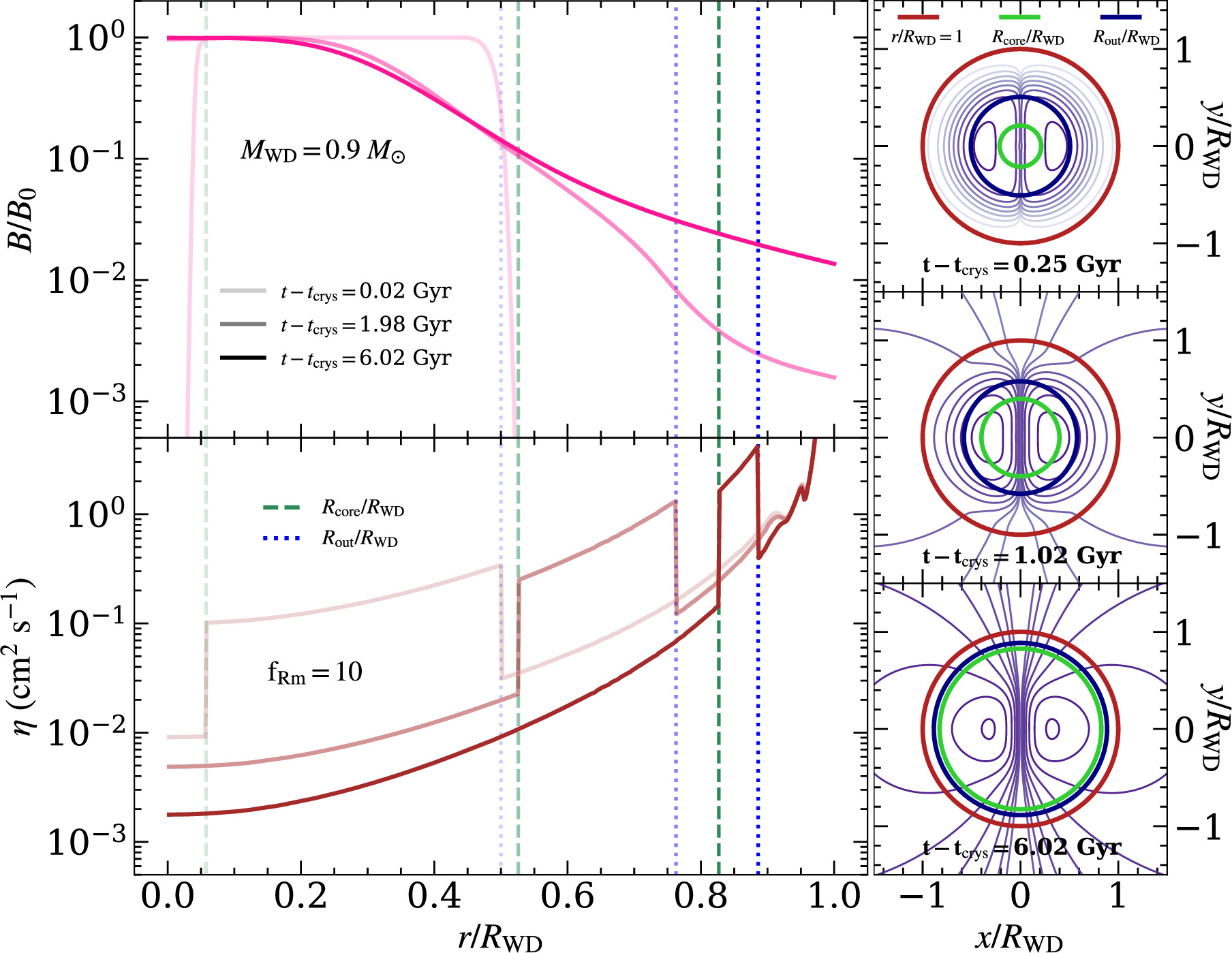
Magnetic Field Evolution for Crystallization-driven Dynamos in C/O White Dwarfs
Matias Castro-Tapia (McGill), Shu Zhang (McGill), Andrew Cumming (McGill)
The Astrophysical Journal 2024
We investigate the evolution of magnetic fields generated by the crystallization-driven dynamo in carbon–oxygen white dwarfs (WDs) with masses ≲1.05 M⊙. We find that the crystallization-driven dynamo theory could explain only magnetic C/O WDs with field strengths less than a few megagauss.
Magnetic Field Evolution for Crystallization-driven Dynamos in C/O White Dwarfs
Matias Castro-Tapia (McGill), Shu Zhang (McGill), Andrew Cumming (McGill)
The Astrophysical Journal 2024
We investigate the evolution of magnetic fields generated by the crystallization-driven dynamo in carbon–oxygen white dwarfs (WDs) with masses ≲1.05 M⊙. We find that the crystallization-driven dynamo theory could explain only magnetic C/O WDs with field strengths less than a few megagauss.
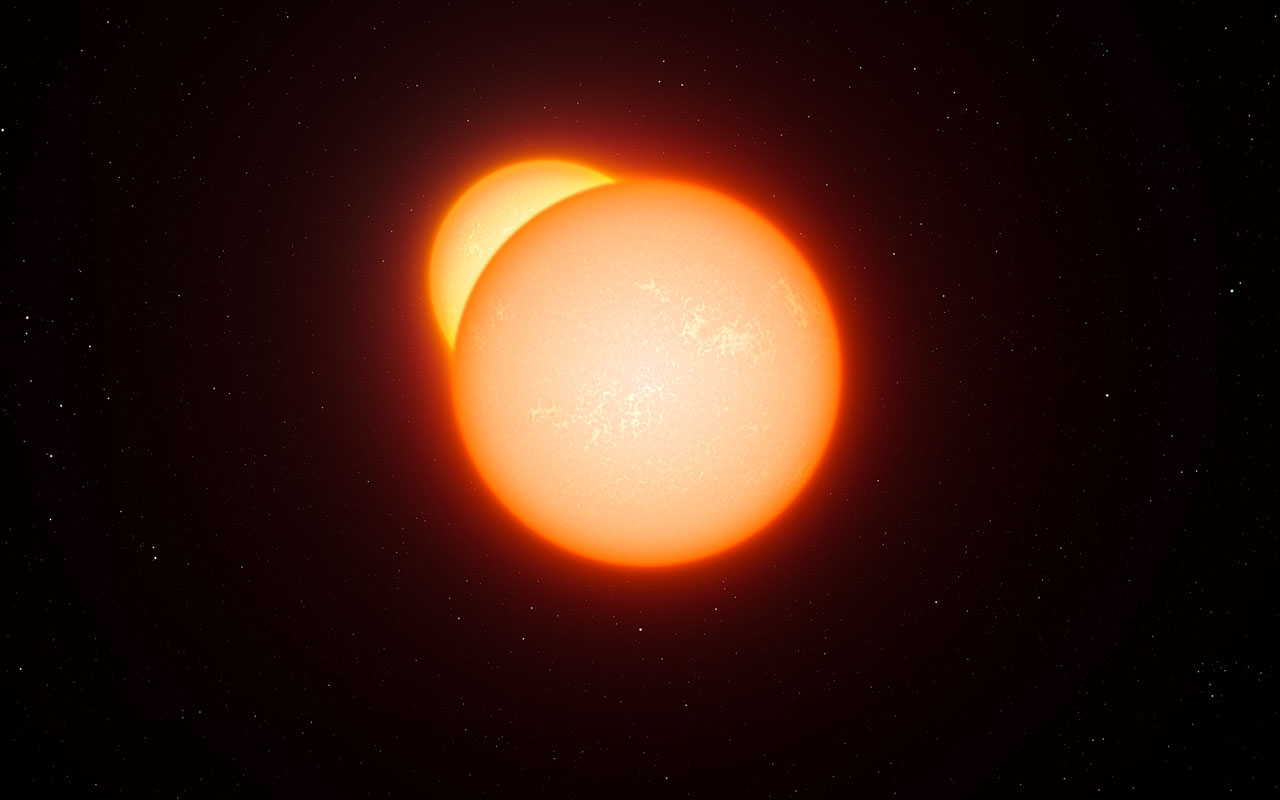
Are lithium-rich giants binaries? A radial velocity variability analysis of 1400 giants
Matias Castro-Tapia (McGill), Claudia Aguilera-Gómez (PUC Chile), Julio Chanamé (PUC Chile)
Astronomy & Astrophysics 2024
Photo by ESO. We assembled the largest possible sample of low-mass giants with well-measured Li abundances, to determine with high statistical significance the close binary fractions of Li-rich and Li-normal giants, and thus test the binary interaction scenario for the emergence of Li-rich giants.
Are lithium-rich giants binaries? A radial velocity variability analysis of 1400 giants
Matias Castro-Tapia (McGill), Claudia Aguilera-Gómez (PUC Chile), Julio Chanamé (PUC Chile)
Astronomy & Astrophysics 2024
Photo by ESO. We assembled the largest possible sample of low-mass giants with well-measured Li abundances, to determine with high statistical significance the close binary fractions of Li-rich and Li-normal giants, and thus test the binary interaction scenario for the emergence of Li-rich giants.
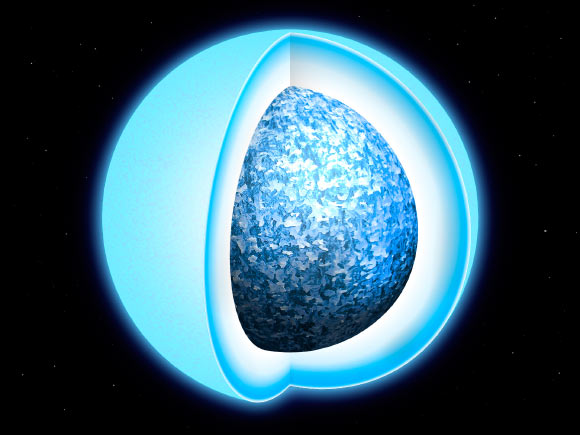
Fast and Slow Crystallization-driven Convection in White Dwarfs
Matias Castro-Tapia (McGill), Andrew Cumming (McGill), J.R Fuentes (CU Boulder)
The Astrophysical Journal 2024
Photo by Mark Garlick / University of Warwick. We investigate crystallization-driven convection in carbon-oxygen white dwarfs. We present a version of the mixing length theory that self-consistently includes the effects of thermal diffusion and composition gradients, and provides solutions for the convective parameters based on the local heat and composition fluxes.
Fast and Slow Crystallization-driven Convection in White Dwarfs
Matias Castro-Tapia (McGill), Andrew Cumming (McGill), J.R Fuentes (CU Boulder)
The Astrophysical Journal 2024
Photo by Mark Garlick / University of Warwick. We investigate crystallization-driven convection in carbon-oxygen white dwarfs. We present a version of the mixing length theory that self-consistently includes the effects of thermal diffusion and composition gradients, and provides solutions for the convective parameters based on the local heat and composition fluxes.
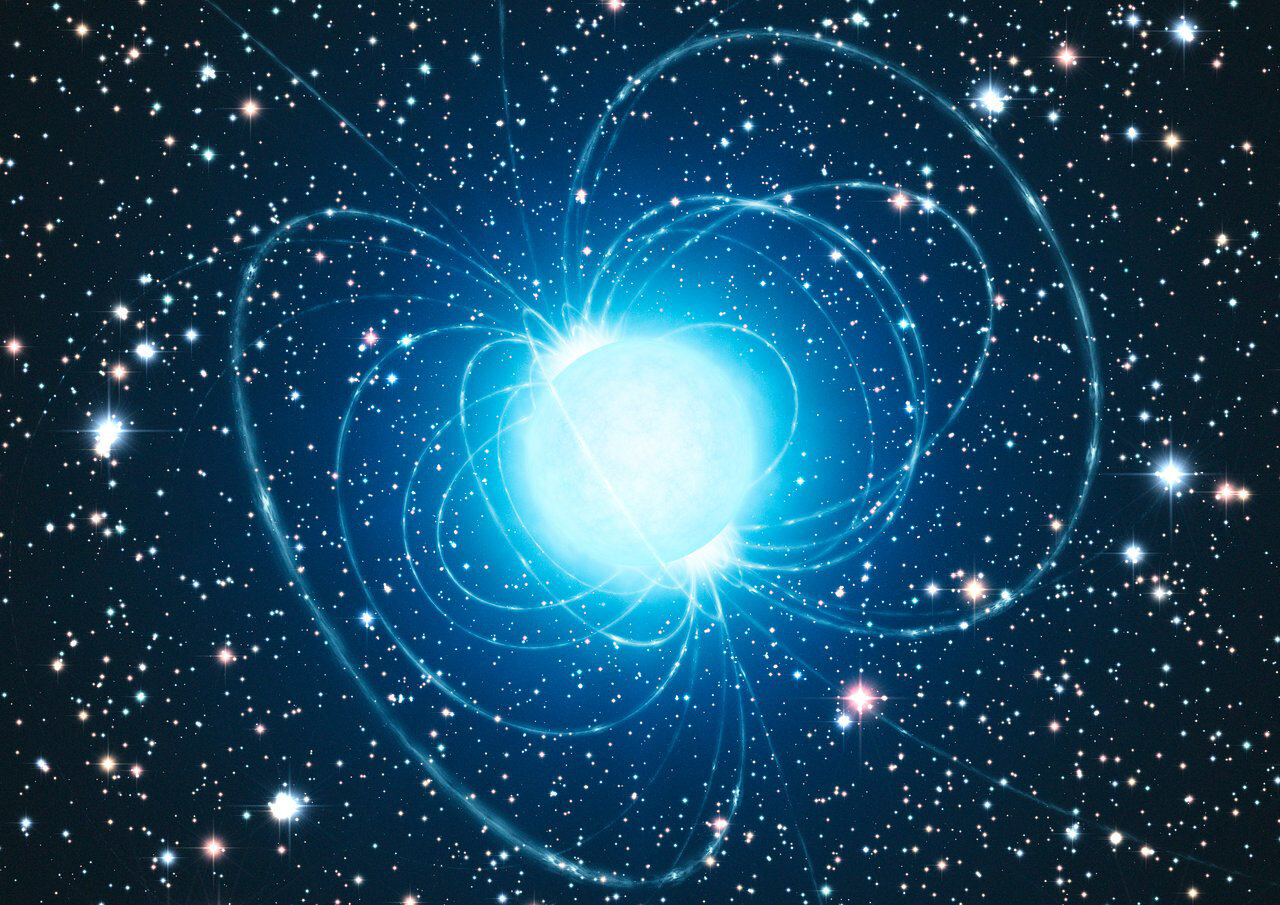
A Short Intense Dynamo at the Onset of Crystallization in White Dwarfs
J.R Fuentes (CU Boulder), Matias Castro-Tapia (McGill), Andrew Cumming (McGill)
The Astrophysical Journal Letters 2024
Photo by ESO/L. Calcada. We combine mixing-length theory with scalings from magnetorotational convection to estimate the typical magnitude of the convective velocity and induced magnetic field for crystallization-driven convection in white dwarfs.
A Short Intense Dynamo at the Onset of Crystallization in White Dwarfs
J.R Fuentes (CU Boulder), Matias Castro-Tapia (McGill), Andrew Cumming (McGill)
The Astrophysical Journal Letters 2024
Photo by ESO/L. Calcada. We combine mixing-length theory with scalings from magnetorotational convection to estimate the typical magnitude of the convective velocity and induced magnetic field for crystallization-driven convection in white dwarfs.
2023
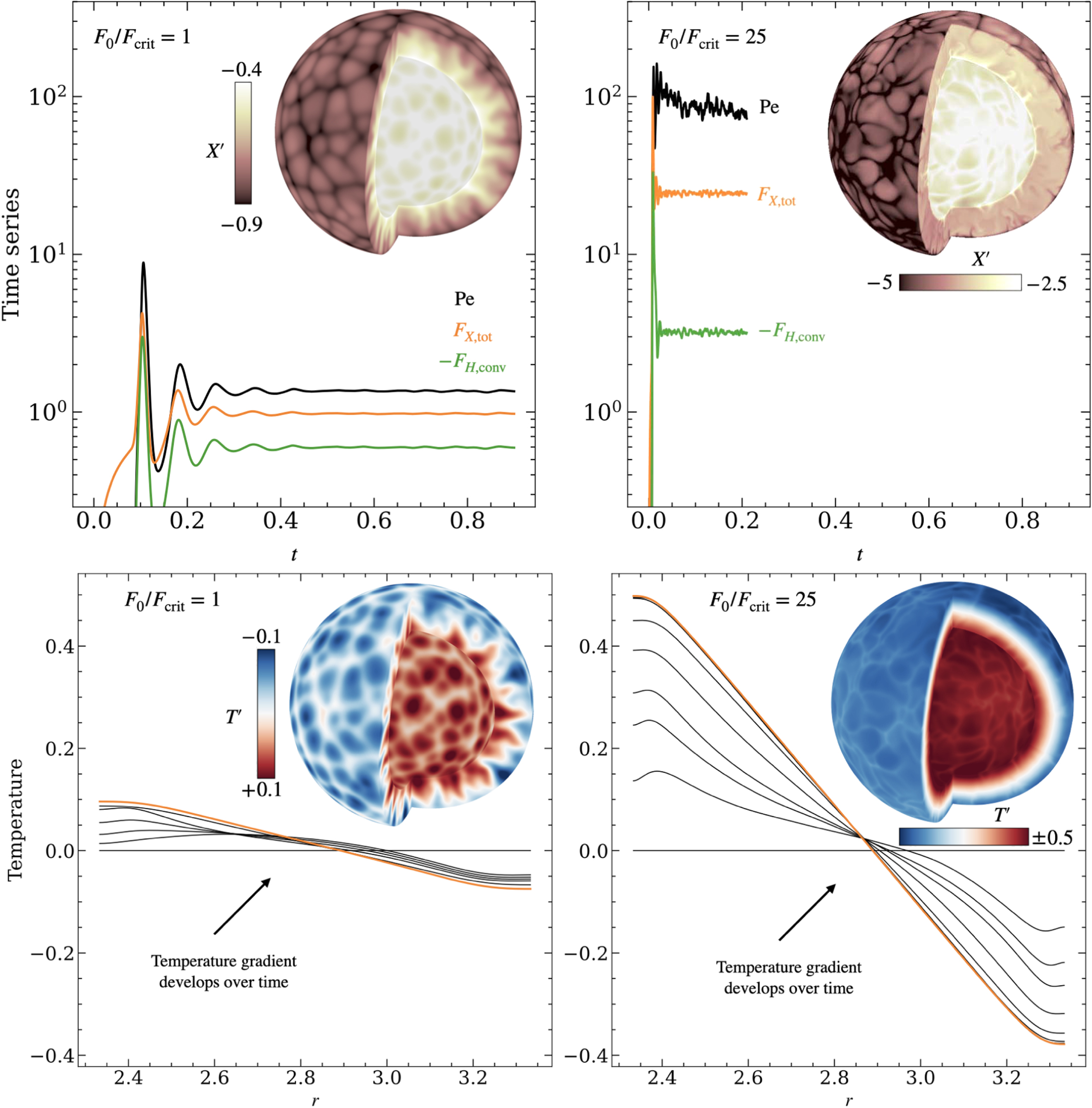
Heat Transport and Convective Velocities in Compositionally Driven Convection in Neutron Star and White Dwarf Interiors
J.R. Fuentes (CU Boulder), Andrew Cumming (McGill), Matias Castro-Tapia (McGill), Evan H. Anders (Northwestern U)
The Astrophysical Journal 2023
We investigate heat transport associated with compositionally driven convection driven by crystallization at the ocean-crust interface in accreting neutron stars, or growth of the solid core in cooling white dwarfs using hydrodynamical simulations and mixing length theory.
Heat Transport and Convective Velocities in Compositionally Driven Convection in Neutron Star and White Dwarf Interiors
J.R. Fuentes (CU Boulder), Andrew Cumming (McGill), Matias Castro-Tapia (McGill), Evan H. Anders (Northwestern U)
The Astrophysical Journal 2023
We investigate heat transport associated with compositionally driven convection driven by crystallization at the ocean-crust interface in accreting neutron stars, or growth of the solid core in cooling white dwarfs using hydrodynamical simulations and mixing length theory.